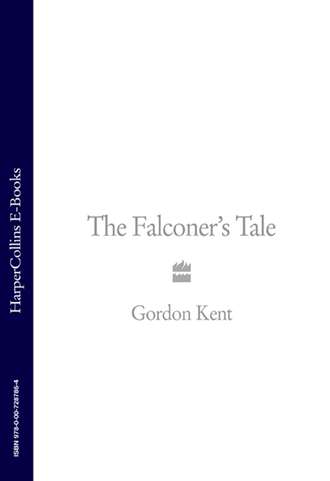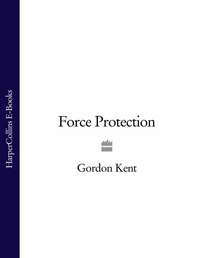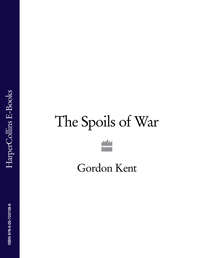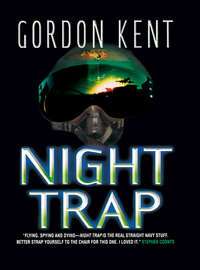
Полная версия
The Falconer’s Tale
“‘Oh-ho,’ you said to yourself, ‘this is suspicious.’”
“No, I said to myself, ‘Clyde Partlow is a good guy to do a favor for.’” Craik was silent for several seconds. “Now Partlow owes me one. And he owes you one—what’s wrong with that?”
“I was building up debts from assholes like Partlow when you were in Pampers.” Dukas waited while a fresh bottle of beer was put in front of him. “You’ve changed.”
“Older and wiser.”
“Where’s the Al Craik who used to say, ‘Damn the torpedoes, we’re going in without a country clearance’?”
“You know what the shelf life of a collections officer is? Short. I figure doing a favor for somebody like Partlow might give my sell-by date a little leeway.”
“I feel like I don’t know you so good anymore.”
“Yeah, you do. Same old lovable Craik, only I’ve wised up about Washington politics. Anyway, Partlow came over to me and asked about you, and I said why and so on, and he finally dropped Piat’s name like he was passing me the secret combination to Bush’s wall safe.” He slipped into a Partlow imitation, cheeks puffed, head back. “‘Might your friend Dukas know how Piat could be reached?’ So I said I’d check. And I did. And here we are.”
“Why?”
“Ah, da big question! I love da big questions! I dunno, Mike—Partlow has an operation that he wants Piat for, that’s all I could get. It’s on the up-and-up—it’s got a task number; and it’s passed the working group. It’s kosher.” He lowered his head, smiled. “But why would he want an untouchable like Piat?”
“You mean it smells.”
“N-o-o-o—”
“If it’s passed the working group, you heard it discussed.”
“Unh-unh. Discussion is general—tasks and goals. Peons like me not to know.”
“That’s sure what I call sharing information.” Dukas wiped a hand over his face. “Man, I’m tired. You at least got a night’s sleep. You know what you have to do to fly to Reykjavik from fucking Naples? Now I gotta do it in reverse. You of course feel great and look great, you bastard.”
“A healthy mind in a healthy body.”
Dukas sat looking at him, lips pushed out, eyebrows drawn together “You’re the guy who used to lecture me about honor, duty. Idealism. Now you’re running errands for one of the most political shits in the business.” He shook his head and held Craik’s eyes. “What happened to that fine rage you used to work up when other people did things for slimy reasons?”
Craik’s smile was tentative, apologetic. “My last fine rage got me a call from my detailer saying that if I didn’t can it, I wasn’t going to make captain.”
“And now you’re a captain.”
Craik nodded. The same small smile was still on his face “‘Honor, duty, idealism.’ Right.” He looked up. “But I believe you gotta pick your battles and your battlefield. And lost causes get you nowhere. Isn’t it okay to scratch the itch of my curiosity about Partlow’s wanting Piat, and maybe have Partlow owe me a favor at the same time?”
Dukas stared at his friend, then finished his second beer. Setting the bottle down carefully on its own old ring, he said, “It sure is comforting to know you’re still an idealist.”
2
Piat had never had a case officer before. Case officers are the men and women who recruit agents and then handle them—long hours of manipulation, a shoulder on which to cry, a voice when it is dark. Piat was used to being the shoulder and the voice.
“Dave’s” was not the shoulder or the voice that Piat would have chosen. Dave was clearly the man’s cover name—he didn’t always respond when the name was called. His voice was rough, assertive, yet with a surprising repertoire of high-pitched giggles and nervous laughter. He had had trouble parking his rental car. He had shown considerable resentment while walking Piat through some shopping in Oban. Piat had been tempted to start coaching him then and there.
Two hours later, Piat sat next to the man on the cafeteria deck of MV Isle of Mull and tried not to gnaw on the sore ends of how little he wanted to do this. He’d taken the money, and there wasn’t much he could do about any of it, but it smelled.
Partlow should have run him himself. They loathed each other, but Partlow was a competent case officer and would have made sure that things got done on time and under budget. Dave was so clearly a second stringer that Piat wanted to ask him what other agents he’d run—if any. It was as if, having recruited Piat, Partlow was now distancing himself from the operation. That wasn’t like Clyde. He didn’t usually let go of anything once he had it in his well-manicured hands.
Piat was sure that if he wanted to, he could ditch Dave at Craignure, the ferry terminal he’d already noted on the map of Mull. And then he’d walk. It was a tempting thought. Dave struck Piat as the type who’d order a lot of searches done by other people and spend a lot of time in cars. Piat thought it might be fun to walk away. In Piat’s experience, the way to lose Americans was to walk. It worked on Russians and Chinese, too.
He’d been paid half the money and he’d discovered that the Agency really didn’t have much on him—or had buried the evidence to protect themselves. He could probably manage a day’s fishing before he flew—
Pure fantasy. He had one passport—his own—and they’d come looking for him. Mull was an island cul-de-sac with only a couple of exits.
Ten thousand dollars for two days’ work, no matter how dirty, would get him back to Greece. If he was careful, the money would see him through the winter. By then it was possible that he would find something in the antiquities market to sell.
Because Dave had taken the window seat, Piat got up and pulled a sweater out of his bag. It was a very nice sweater—Burberry, more than a hundred pounds in Oban on the High Street. Piat had never been able to resist spending other people’s money. He had purchased a wardrobe that would last him five years—good stuff, if you liked English clothes. Piat liked anything that lasted. He pulled the sweater over his head and added the clothes to his list of positives. He could leave Partlow holding his baggage now—there was nothing in it worth as much as the clothes he had just encouraged Dave to buy for him. Scratch that thought—Piat wanted the rods back. He sat and admired his wool trousers and smiled again.
Dave didn’t even look up. He was reading The Economist with an air of self-importance that Piat longed to puncture. He shrugged internally. Why bother? Piat took out a guide to the early European Bronze Age and browsed it, trying to separate the useful facts from the clutter of drivel about prehistoric alphabets and runic stones. The early European Bronze Age was the hottest market in antiquities. Piat tried for fifteen minutes, but the book didn’t hold his attention.
Why does Partlow need me? Piat chewed the question. Hackbutt was a handling nightmare—did Partlow know that?
He looked at the cover of his book and wondered if any of the Roman authorities had commented on the world before Greece. All too damned speculative. He allowed his eyes to skim past the usual photos; a bronze breastplate, a helmet, a spectacular sword with an early flanged hilt, some badly decorated pottery. He knew all the objects. They decorated major museums. It needed a remarkable coincidence of durability, placement and luck for anything that old—the second millennium BC—to be found in northern Europe. Even to survive.
Partlow is doing something around the rules—above, below, whatever. He had to be. He’d involved Dukas—Piat went back with Dukas, not exactly as pals but with some respect. He’d involved Alan Craik. Piat didn’t love Craik but he had seen him in action. Dukas and Craik were buddies. Dukas and Partlow were not buddies at all.
And Hackbutt was into falconry—and Partlow had said right out that’s why they wanted him. Most of the Arab bigwigs were into falconry, too. No big leap of logic there.
Like speculating on what classical authority might have a bearing on the Bronze Age, speculating on Clyde Partlow’s motives from the deck of the ferry wasn’t getting Piat anywhere.
I can find a partner and a dig when I get back to Lesvos. Worst case, I’m a few thousand richer, and I have some new clothes.
Piat shrugged, this time physically. It made Dave glance up at him from his magazine. For a moment their eyes met. Piat smiled.
“I’m trying to read,” said Dave.
Piat nodded, still smiling. He started to prepare himself to meet Edgar Hackbutt, bird fancier, social outcast, and ex-agent.
Piat swung the rented Renault down into Tobermory’s main street, reminding himself to get over to the left, toward the water. The morning was brilliant, with thin, pale-blue mare’s tails high up against a darker blue sky. The tide was in, and big boats rode alongside the pier; as always when he saw them, he thought, I could live on one of those, but in fact he never would. Too much a creature of the land, or perhaps too suspicious of the predictability of a boat, too easy to find. On land, you could always get out and walk.
He drove along the waterfront, brightly painted buildings on his right, memorizing them—hardware store, chandler’s shop, bank, grocery—and then pulled up the long hill out of town and around a roundabout to the right, heading not down the island’s length but across its northern part. A sign said “Dervaig”; he followed it, passed a chain of small lakes (Mishnish Lochs, fishing, small trout—he’d pretty much memorized a tourist brochure) and, with a kind of fierce joy, drove the one-lane road that twisted and switch-backed up and down hills. He played the game of chicken that was the island’s way of dealing with two cars driving straight at each other: one would have to yield and pull into a supposedly available lay-by. Locals drove like maniacs and waved happily as they roared past; tourists either went into the lay-bys like frightened rabbits or clutched the wheel and hoped that what was happening to them was an illusion. Piat, flicking in and out of lay-bys, waving when he won, giving a thumbs-up when he didn’t, had the time of his life.
He climbed past a cemetery above Dervaig and, following a map in his head, turned left and south. Halfway down the wide glen would be a road on the right; from it, a track went still farther up and then briefly down. At its end, Dave had assured him, Hackbutt’s farm waited. Piat drove slower, head ducked so he could look out the windscreen. He’d have said that landscape didn’t interest him, but in fact, it fascinated him, only without the sentimentality that led other people to take photos and paint watercolors. He always saw possibilities—for escape, for hides, for pursuit. Here, the sheer scale of the place surprised him: this was an island, and Tobermory was almost a toy town, but out here was a breadth of horizon that reminded him of Africa. Even with the mountains. The glen was miles wide, he thought, the mountains starting as rolling slopes that careened abruptly upward and became almost vertical climbs to their summits. Strong climber could shake anybody up there. The landscape was brown and green and gray; grass, not heather; bare rock and bracken. You could walk and walk. Or run and run. If the footing is okay.
He found the road to the right and drove it more slowly; it was ancient tarmac, crumbling along the edges, potholed, hardly wider than the car. He came over a rise and almost ran into a goofy-looking runner, some old guy wearing what looked like a giant’s T-shirt that flapped around him in the crisp wind. Hardly noticing him, the runner plodded on. Piat thought, I could give you half a mile and still get there first. After another mile, the road forked and he went right. Almost there. When he had gone half a mile farther, he pulled up just short of a crest and got the car into a lay-by and stopped. “Please do not park in the lay-bys,” the tourist brochure had said. You bet.
Piat got out and spread an Ordnance Survey map on the hood, traced his route from Tobermory, found the fork, followed with his finger, and judged from the contour lines that if he walked over the crest, he’d be looking down on Hackbutt’s house. Or farm, or whatever the hell it was. His aviary, how would that be?
He had borrowed a pair of binoculars from good old Dave—Swarovskis, 10x50, nice if you didn’t have to carry them very far—and walked the hundred feet to the top of the hill. He made his way into the bracken and moved toward a rock outcrop, keeping himself out of sight of the house he’d glimpsed below, until he reached the outcrop and put his back against it and turned the binoculars on the house.
It could have been any house on the island—central doorway, two windows on each side, a chimney at one end, second storey with two dormers. The color of rich cream but probably stone under a coat of paint, possibly an old croft fixed up but more likely built in the last hundred years. At the far side of the house, clothes blew in the wind on a circular contraption with a central metal pole. Behind it, as if to tell him it was the right house, were pens and little shacks like doghouses that he took to be sheds for the birds; beside a half-collapsed metal gate, a dejected-looking black and white dog lay with its head on outstretched paws, beside it what was apparently supposed to be a doghouse made out of boxes and a tarp. The bird pens seemed to have been set out at random, the hutches put together by somebody who didn’t know which end of a hammer to hit his thumb with. That’d be Hackbutt, for sure.
Piat studied the place. He hoped to actually see Hackbutt so he’d go in with that advantage. They hadn’t seen each other in fifteen years; let the other guy feel the shock of change. Hackbutt would have an idea he was coming but wouldn’t know when: Piat had sent him a postcard with a picture of a bear on the front, a nonsense message on the back signed “Freddy.” From “ready for Freddy.” It meant “get ready;” the bear was the identifier, an old code between them. Would Hackbutt remember? Of course he would. In fact, Piat thought, he’d piss his pants.
After fifteen minutes, nobody had appeared near the house. Piat eased himself around the outcrop and walked back through the bracken to the car. He leaned on the roof and trained the binoculars around him, idling, not wanting to go down to the house yet. Apprehensive? Cold feet? He looked down the road. The goofy runner was coming back. He was making heavy going of it now, his feet coming down as if he were wearing boots, his hands too high on his chest. The too-big T-shirt blew around him. He had a beard and long, gray hair, also blowing, the effect that of some small-time wizard in a ragged white robe. Smiling, Piat put the binoculars to his eyes to enjoy this sorry sight, and when the focus snapped in, he realized with a shock that the runner was Hackbutt.
The last time he had seen Hackbutt, he’d weighed about two-thirty and had had a sidewall haircut, smooth cheeks, and eyes like two raisins in a slice of very white bread. Now, there was the beard and the long hair, and the face had been carved down to planes that made his eyes look huge; his skin was almost brown, and he had lost a lot of weight—so much that his legs looked fragile. The T-shirt, Piat realized, must be one of his own from the old days.
He still can’t run for shit, at least.
Hackbutt toiled up toward him. Piat moved around to the rear of the car and leaned back against the trunk. The runner came on, his breathing hoarse and hard, his eyes on the crest. He was going to pass Piat without looking at him, Piat knew—eye contact had always been hard for the man, confronting new people a torment. Now, as he came almost even, Piat said, “Hey, Digger.”
Hackbutt was the kind of nerd who actually did double takes. He might look like a wizard now, but inside was the same insecure fumbler. Still running, he looked aside toward Piat, looked away, then really looked back and, finally believing the evidence of his eyes, came to a stop with his mouth open and his T-shirt flapping. “Jack?” he said, breathing hard. He’d always known Piat as Jack Michaels.
“Hey, man, you look good. Putting in the miles, that’s great.” Piat was still leaning on the car. He held out his hand. “Sight for sore eyes, Digger.”
“Jeez, Jack, this is—” Hackbutt took a death grip on Piat’s hand. The guy was really strong. “I got your card, but I didn’t know when you were coming!” He grinned. “Wow, this is unbelievable!” Then they both said it was great, and unbelievable, and a long time.
“You look good, Dig. Lost some weight, haven’t you?”
“Some weight! Sixty pounds, Jack.” His breathing was getting better and he was able to stick his chest out. “Surprised?”
“Amazing.”
“Jeez, Jack, you haven’t changed. You look just the same. You look great.”
“Little older, little grayer.” He grinned at Hackbutt. Piat was surprised to find he was pleased to see him. Good old, easy old Eddie Hackbutt. “Let me run you down to the house.” That was a slip; he shouldn’t have admitted he’d already seen the house. Hackbutt, however, didn’t notice; he was too busy shaking his head and frowning.
“No, no, Irene wouldn’t like it. I can’t give in like that. Anyway, I’m just coming up on the big finish—over the hill and then I sprint to the front door.”
Piat thought that would be worth seeing. Most of his concentration, however, was on Hackbutt’s “Irene.” Partlow’s file had said nothing about a wife, had mentioned only a “companion,” name unspecified. “Keeps your nose to the grindstone, does she?”
Hackbutt’s face darkened. “No, it isn’t like that!” This was new—he’d grown a spine in fifteen years. “You’ll have to meet her.” And Hackbutt turned about and started his painful plod up the last hundred feet of the hill before his final sprint.
Piat sat behind the wheel without starting the car; he wanted to let Hackbutt get home and tell “Irene” about meeting good old Jack. The house was no more than a third of a mile away—give the man four minutes. Five, so he could get out of that T-shirt. And Piat wanted to think: he’d made a mistake. He’d thought he’d told himself that Hackbutt would be changed, but he’d thought only that he’d be more like Hackbutt—fatter, nerdier—and not that he’d have reinvented himself as a skinny, bearded exercise freak. Or been reinvented by a woman named Irene, who now took on an importance that Piat hadn’t even guessed at.
Losing my touch. Or getting rusty.
He started the engine.
Irene Girouard wore a long dress, as if she had something to hide, but otherwise she was very much in evidence. Piat thought that her first initial, I, probably summed her up, so he didn’t need the confirmation of the wallful of photographs that greeted him as soon as he was taken into the house.
“Irene’s a photographer,” Hackbutt said. His tone said, I’m crazy about Irene.
The photographs were all of Irene, taken by Irene. Irene’s left eye, Irene’s chin, Irene’s right knee, Irene’s vagina (oh, yes), Irene’s left breast in profile, full front, and close-up, emphasis on big nipple. Piat decided that the long dress wasn’t meant to hide her but to refer curiosity to the photos.
“I’m doing an installation in Paris any time now.” Her voice had a hint of something foreign. “I just need to get my shit together and then it’s go any time I say so. Hackbutt’s gathering found objects for me.”
Hackbutt smiled. “Irene’s going to be a household name.”
“These are all, mm, you?” Piat said.
“I don’t fuck around with false modesty. Yes, that’s my cunt, if that’s what you want to ask. The photos’ll be assembled on stuff we’ve found, mostly animal bones, to make a humanoid construction. I’m fastening the photos to the bones with barbed wire from an old fence he found.”
“It’s called I Sing the Body Electric,” Hackbutt said.
“Whitman,” she said.
Piat thought of saying Whitman Who? but didn’t, aware that he didn’t like the woman at all, that she was going to be a problem, and at the same time finding a woman who took pictures of her own vagina perversely interesting. She also had a big, hearty, apparently healthy laugh, as if despite all the photos she was as sane as a stone and he ought to get to know her. For the sake of saying something, for the sake of having to put up with her, he said, “Are you going to cut the parts out of the photos when you, mm, barbed-wire them to the stuff?”
“God, no, that would be so calculated!”
That was just the central hall of the house, as far as they’d got at that point. There had been introductions, a pro forma question about something to drink—they didn’t drink tea or coffee, but they had water “from the hill” and juice, source not given—and then the photos, Hackbutt saying, as if they were the reason for the visit, “These are Irene’s photographs.”
There was more of Irene throughout the house, Piat learned. Nobody picked up after him/herself, apparently, so parts of both of them were left where they fell: the living room, just to the left after you came in the front door, was thick with art magazines, falconry paraphernalia (Piat had bought a book in Glasgow, so he recognized the jesses, at least); batteries, probably used; a battery charger, plugged in but empty; a sizable number of animal bones; a plate that had held something oily. Four spindly plants in the windows, yearning for a sunnier climate. The kitchen, next behind the living room, was furnished mostly in dirty dishes, a camera, burned-down candles. Piat, himself scrupulously neat, wondered if he’d dare to eat anything that came out of it. On the right of the central hall were, first, a small bedroom (“You’re going to stay, aren’t you, Jack?”), then a closed door that led, he supposed, to their own bedroom, which he hoped they wouldn’t show him. He imagined dirty laundry in shoulder-high heaps. At the end of a corridor, another closed door hid what Hackbutt called “Irene’s studio.”
Then it was out to see the birds, which were to Hackbutt as the photos were to Irene. They were hawks and falcons, different types that Piat couldn’t distinguish; hooded, silent, they sat on perches and occasionally turned their heads. Hackbutt insisted on feeding two of them for him to watch, and he demonstrated their training with one of them and an old sock that was supposed to represent a rabbit. Hackbutt almost had a glow around his head; his eyes were those of a fanatic. Partlow, he thought, had chosen well—if Hackbutt could be recruited.
“I wish I’d known you were coming,” Irene said when she’d decided they had spent enough time on the birds. “We could have had lunch.”
“I thought I might take you to lunch.”
She laughed that big, healthy laugh. “Oh, Christ, you can’t do that in this godforsaken place! We don’t eat human food. We’re fucking vegans, nutcases. I go in a restaurant here and the smell makes me barf before I sit down!”
“Maybe,” Hackbutt said, “maybe, honey, we could have a salad or something.”
“I don’t think Jack is a salad type.” She looked Piat up and down. “He looks like a carnivore to me.”
“Raw buffalo, mostly,” Piat said. He added no, no, he wouldn’t stay; no, thanks; no; but he had some things for them in the car he’d meant to bring in. Just sort of getting-reacquainted stuff.
He hadn’t known why, but he’d thought Hackbutt would be poor. On a city street, Hackbutt could have passed for one of the homeless, but in his own context, he looked right, neither poor nor rich, certainly not needy. And Irene, no matter what she was now, had known money, he thought. The accent, a casual remark about “when I was at McGill,” a long-cultivated air of rebelliousness without penalty—no starving in garrets, please—told him she was doing a trapeze act over a very safe safety net. And the net, it turned out, was named Mother. “Oh, Mother sent that in her last Care package,” she said of a CD player. Said it with contempt, but then socked a CD into it and said she hoped he liked bluegrass. He didn’t, in fact, but knew it would do no good to say so.






